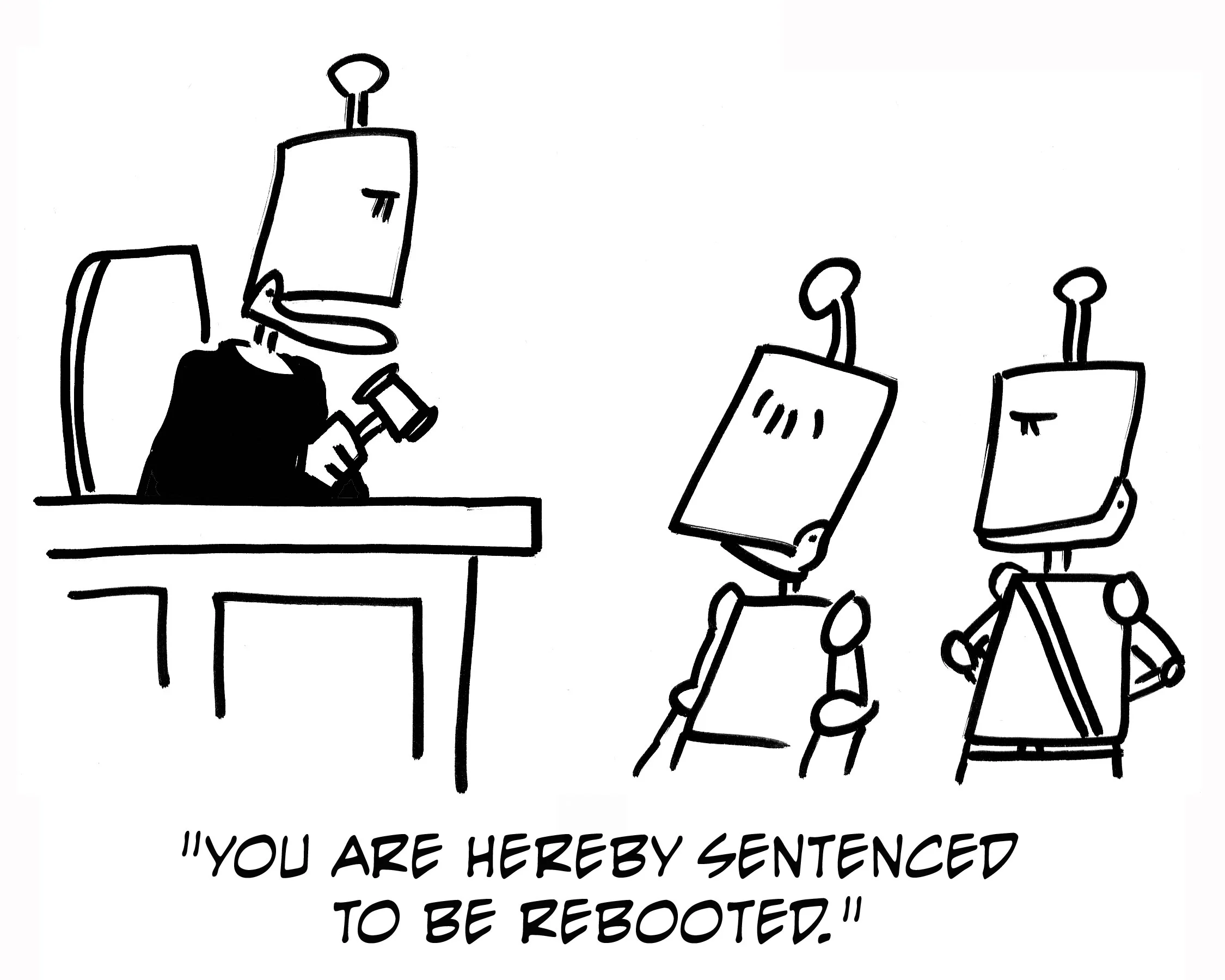Lawyer robots will one day kill us all while suing us for copyright infringement on our DNA, but until then, it could be that technology is making the profession a little nervous about its role in IT.
Rohit Talwar of Fast Future Research has written a really thoughtful piece on the relationship between the legal sector and information technology. In an ongoing research project, Mr. Talwar sees the following key themes emerging:
- The technology environment will be characterised by the “internet of things” [machines “talking” to machines], social media and “social listening”, smart environments, a more immersive multi-sensory intelligent internet, increasingly sophisticated data gathering and analysis, plus widespread penetration and adoption of artificial intelligence (AI).
- End-users will increasingly be mobile, supported by intelligent digital personal assistants and “lab on a chip” devices, and use wearable technologies enhanced with augmented reality (AR) and holographic displays.
- Devices will offer AI-enabled smart interfaces, automatic language translation, and support user interaction via gestures, language and thought.
- Customer service delivery could be enhanced through deep collaboration environments, portals providing tracking dashboards and total transparency on the status of individual matters, shared databases, advanced videoconferencing, touchable holographs, novel data handling tools and sophisticated security technology.
- Legal function and law firm processes could be transformed through developments in AI, knowledge management, smart data capture and analysis, predictive analytics, intelligent document production, video mining, integrated analytics and “gamification”.
- Emerging technologies could bring about dramatic changes in the way matters are conducted and information is analysed and presented back to clients.
- At the IT management level, the cloud will be used for infrastructure, applications, development and data. Priorities for IT management will shift from production to innovation, developing next-level services and evolving the IT staff profile, skill sets, management focus and alignment. For in-house functions, a dedicated IT and knowledge manager will become an increasing priority.

Services like Legalzoom are changing the traditional efficiency of certain legal practices, streamlining and virtualizing processes that used to be strictly the domain of flesh and blood lawyers. Therefore, there are clear examples of a direct impact on the legal profession.
In addition, as our actions and output are increasingly captured in digital formats and stored indefinitely, the nature of the services that the legal profession offers will probably have to adapt. The International Legal Technology Association (ILTA) is funding Talwar’s Legal Technology Future Horizons research with the hope o creating strategic priorities for the profession in the coming decade.






